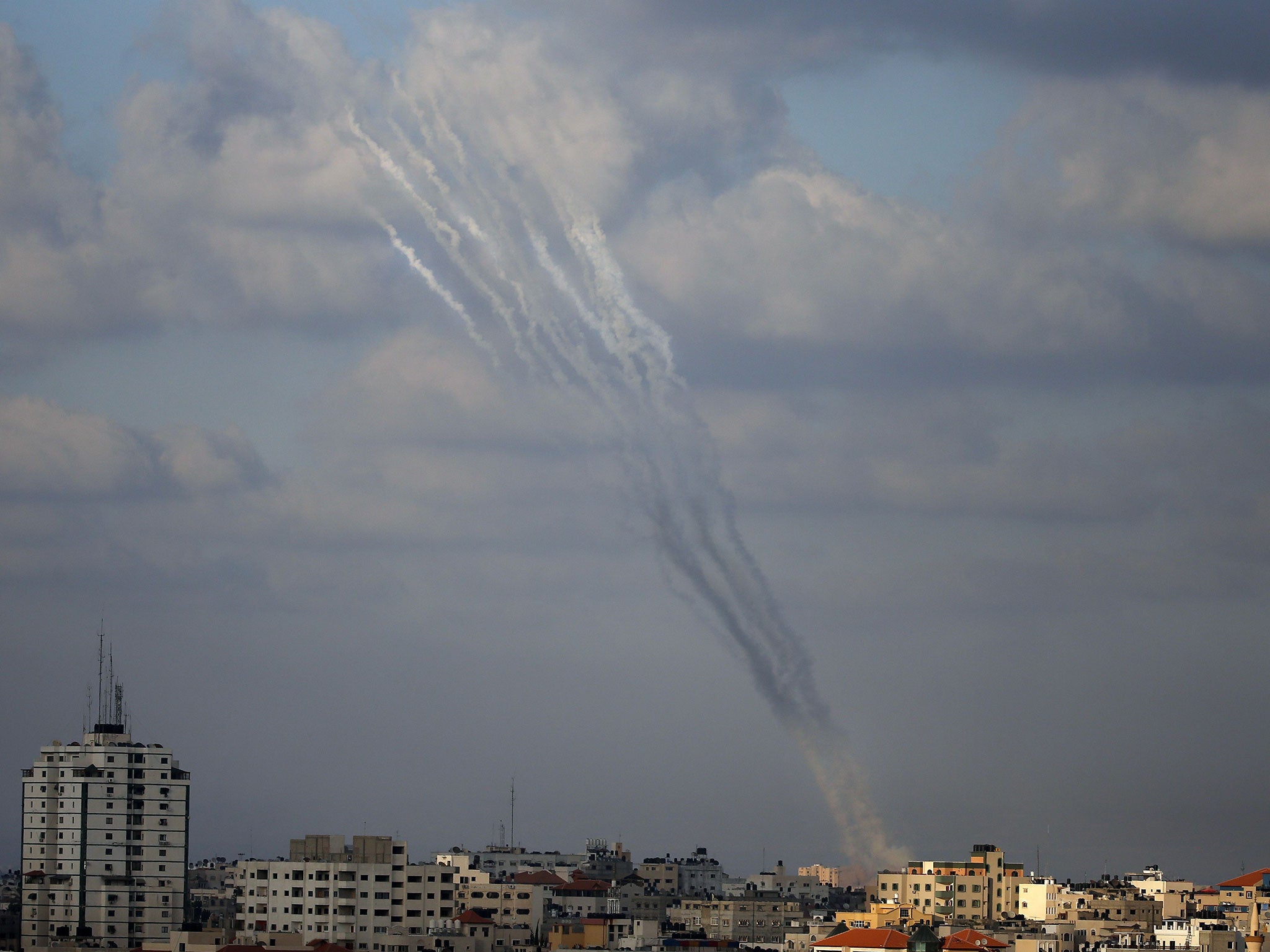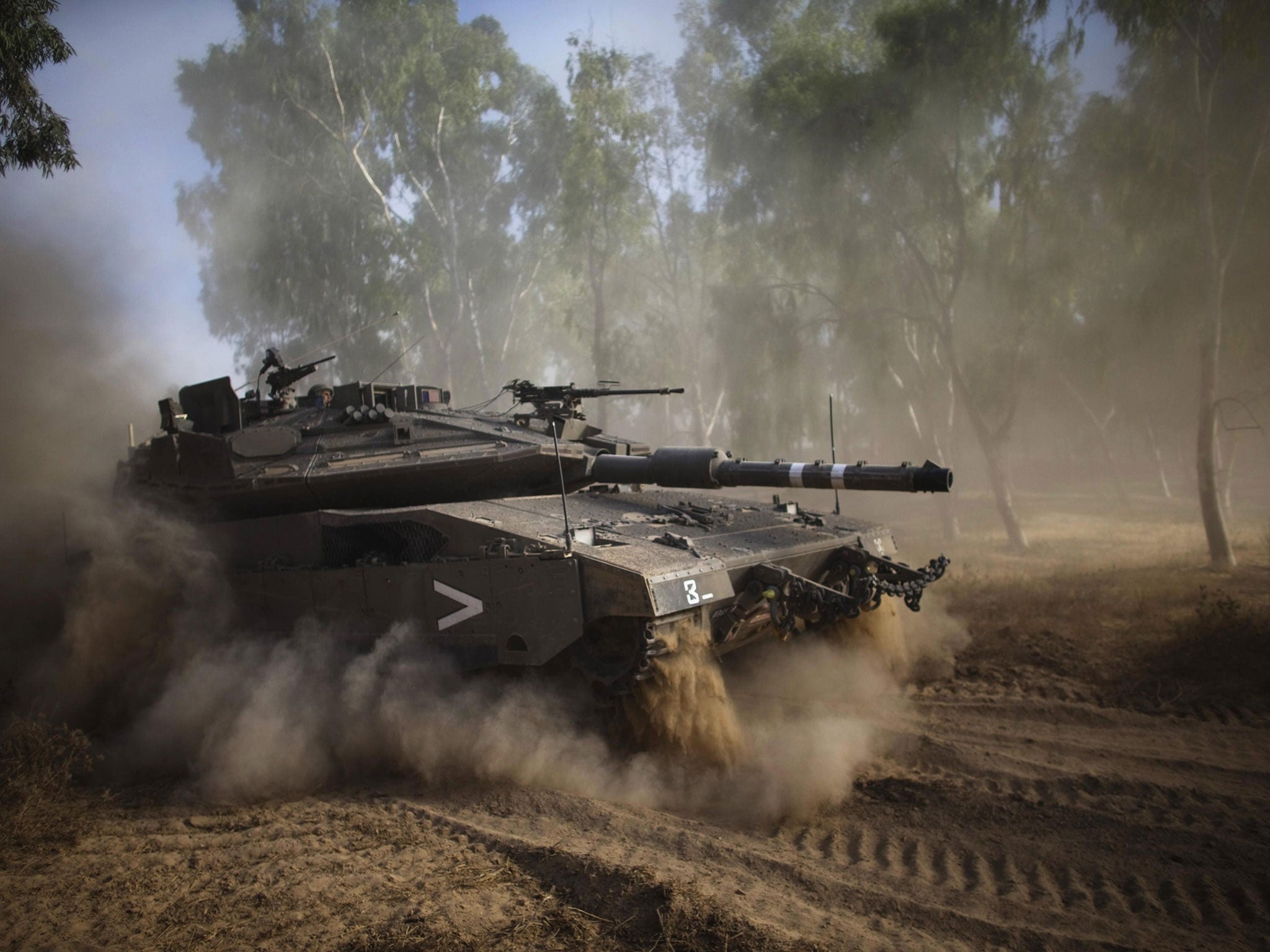Israel-Gaza conflict: Five-hour ceasefire allows Palestinians a brief return to normality - but for many, peace without dignity is not worth it
Gaza residents took the opportunity to bank, shop for food and take stock, all the time knowing the bombing would start again soon

Your support helps us to tell the story
From reproductive rights to climate change to Big Tech, The Independent is on the ground when the story is developing. Whether it's investigating the financials of Elon Musk's pro-Trump PAC or producing our latest documentary, 'The A Word', which shines a light on the American women fighting for reproductive rights, we know how important it is to parse out the facts from the messaging.
At such a critical moment in US history, we need reporters on the ground. Your donation allows us to keep sending journalists to speak to both sides of the story.
The Independent is trusted by Americans across the entire political spectrum. And unlike many other quality news outlets, we choose not to lock Americans out of our reporting and analysis with paywalls. We believe quality journalism should be available to everyone, paid for by those who can afford it.
Your support makes all the difference.Three young injured boys lay on beds at Shifa Hospital, a reminder of the human cost of the conflict in Gaza. They were all from the same family, the Bakrs. Four of their young cousins and brothers had been killed in an Israeli attack as they played on the beach on Wednesday afternoon.
“This is the reason why we need peace, to stop such barbarity taking place,” said Mofeed Al-Hasaina, a minister of the Palestinian government who had come to visit. “We need a just peace which will stop Israelis hurting our kids. We’ll know very soon if it’s possible.”
While negotiations continue in Cairo, Gaza got a brief taste of peace today in a five-hour humanitarian truce between Israel and Hamas. There was silence in the air, no warplanes or rockets, and clamour and queues on the ground, with the urgency of knowing that time was ticking away until the bombing started once again.
Ten minutes drive from the hospital, the Bank of Palestine on Omar Mokhtar Street in Gaza City was under siege with hundreds of customers trying to obtain their unpaid salaries, redeem cheques and use cashpoint machines.
Like all banks, it has been shut since the air strikes began. Many of those who turned up, even before the ceasefire had begun, were public employees who had not been paid for weeks. Tempers frayed as the lines lengthened and it became increasingly apparent that the vast majority of those who had been waiting would have to leave empty-handed.
Rami Mahmood Sawada gave up after three hours. “The banks said they would only be open for the time when this truce was on. No one knows when they would open again. I haven’t got my salary for two weeks,” he said. “It would have been difficult enough with just my family, but now we have a lot of relations living with us because of the war and I am not sure how much longer we can carry on.”
The 37-year-old health ministry employee added: “We have been working without salaries. We can’t stop at such a time doing the jobs that we do, we have to deal with more patients than ever with all the bombing going on.”
There were cries, of confusion followed by anger. A man in the throng at the head of the queue at the cashpoint machines had been taking the bank cards of a group of women stuck behind to helpfully draw out money. He had suddenly disappeared with some of the cards and the cash. There was no sympathy for a huddle of women in hijab from Abdurrahman Abdullah, who had also failed to get his salary. “He had gone to do his Ifthar shopping, it was silly of them to trust him.”

There was plenty of trade for Ifthar, the evening meal after the day’s fasting during Ramadan, at the main market. Firas al-Mabrouk, the owner of a vegetable stall, was beaming: “This is the best day I have had in a week. Things have been really bad, I am around 40 per cent down on my sales. During Ramadan people normally do their shopping in the evening, but because of the missiles they are not going out after dark. But, of course, this is just one day. I’ll only be open for a few hours again tomorrow.”
The shopping had been turned into a day out for the Hamadi family. “We don’t even go out during the day now unless we have to, it’s too dangerous,” said Um Hania, keeping a firm grip on her two little daughters, aged five and three. “Of course, we all want peace. But we don’t want peace unless we win some dignity in return. Why do we have to live like hunted animals? The Israelis keep bombing homes, mosques, schools, saying there are fighters there, or weapons there. That’s all untrue.”
However UNRWA (the United Nations Relief and Works Agency for Palestine) said that it has discovered, during a routine inspection, 20 rockets hidden in a vacant school. “This is a flagrant violation of the inviolability of the premises under international law,” it said in a statement.

The Israelis had been blowing up rocket caches in the north, near its border. In the village of Sayafa, from where you can see into Israel, the Zindar family were being reunited for the first time in a week since some of them moved following a warning from the Israelis of an impending military offensive. They had returned for a brief visit; the walls pitted with bullet holes a reminder of the dangers posed in the area. One of the brothers, Mahmood, suffered, severe leg injuries in 2009, during a previous Israeli offensive.
“We didn’t leave our home before, but the difference is that now a lot of us are married and there are children around: we have heard how many children have been killed this time and we are all very worried,” said Mohammed, 27, another brother. “The big problem is that if something happens, ambulances can’t get here.” Naji, a stepbrother, decided to stay behind: “It doesn’t matter where you go in Gaza, nowhere is safe.”
The Bakr boys were at the port in Gaza City, on a sunny afternoon with clear visibility, when they were hit by shells. At the Shifa Hospital Mofeed Al-Hasaina, pointed at 11-year-old Monteser, bandages around his chest, and exclaimed: “The Israelis are attacking little boys. But he is going to grow up to be a man and he will want to fight them. This is what they have created.”
After the Minister had gone, Monteser spoke of his sadness at the loss of his brother and cousins, and that he would never forgive the Israelis. Did he want to fight them when he grew up? “No, I want to be a fisherman like my father, that’s all,” he replied.
Join our commenting forum
Join thought-provoking conversations, follow other Independent readers and see their replies
Comments